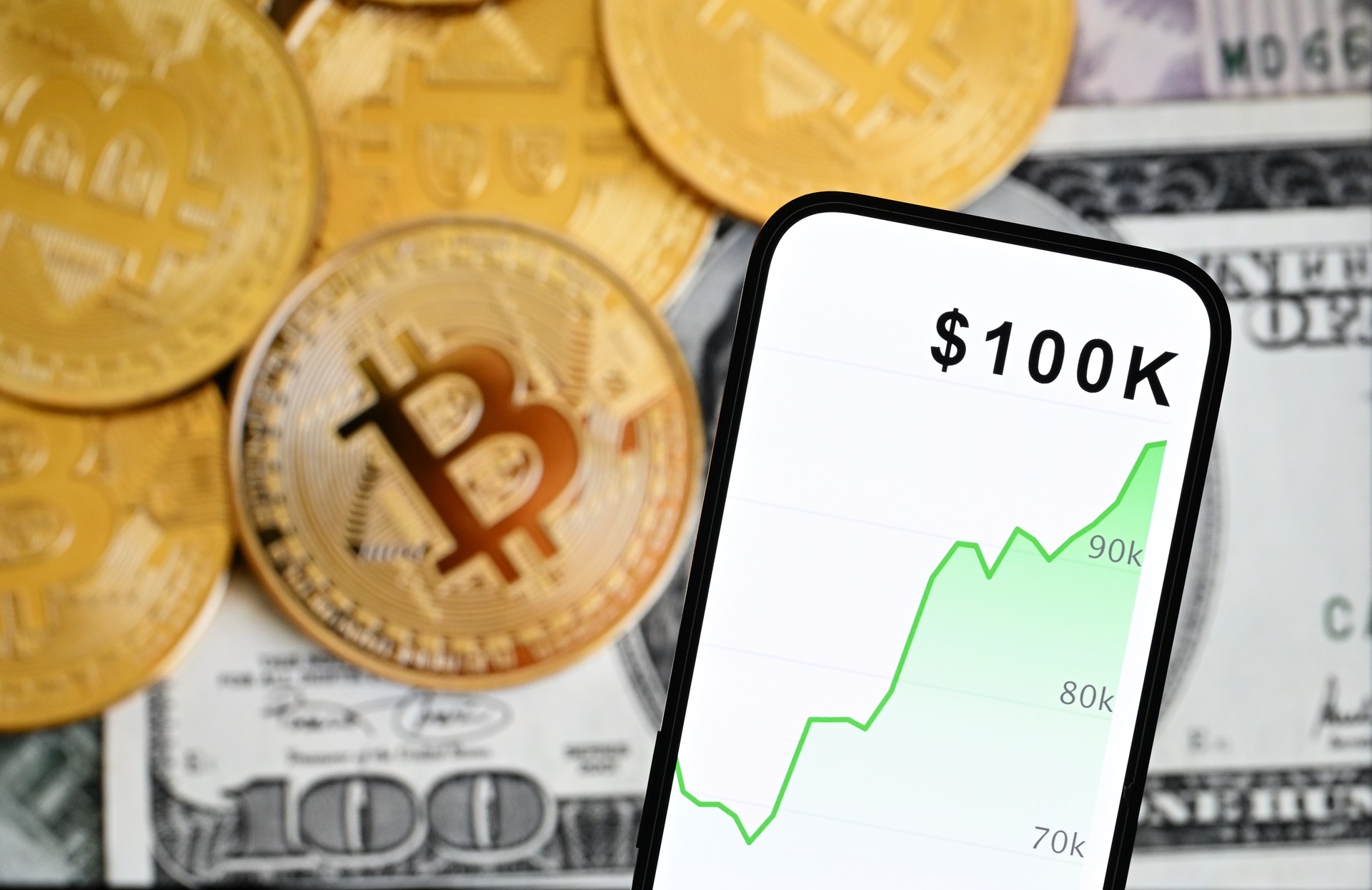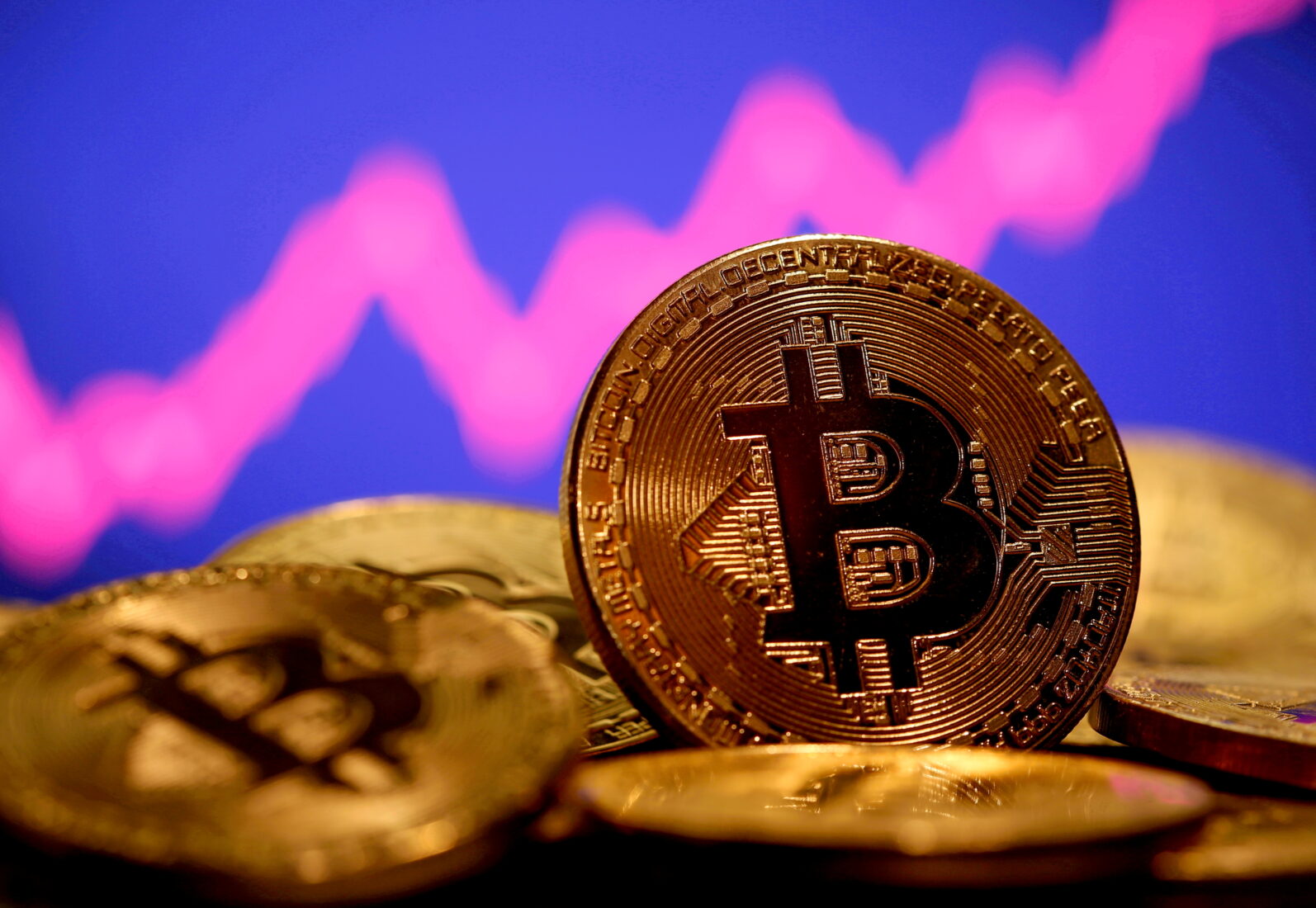
After a harsh slump on Tuesday, bitcoin rebounded to its $100,000 level on Thursday amid heated discussions about the cryptocurrency, ranging from speculations that it might replace the U.S. dollar to anticipations of when it could reach a $1 million valuation.
Bitcoin regained its value following President-elect Donald Trump nominated Brian Quintenz to the Commodity Futures Trading Commission (CFTC). Quintenz is the policy head of a16z Crypto, the digital asset arm of capital market firm Andreessen Horowitz, and a former Republican CFTC commissioner.

Bitcoin fell to $94,304.5 at its lowest on Tuesday, down 6.74% from its week-opening value of $101,129.7. The drop, driven by record-breaking liquidations, wiped nearly $260 billion from the cryptocurrency market capitalization. The decline was fueled by the unveiling of Google's next-generation quantum chip, Willow.
According to investing.com data, bitcoin prices surged to $101,977.78 over the past 24 hours and are currently trading at $100,644.6 by 10:37 a.m. GMT.
U.S. consumer price index (CPI) data strengthened expectations of a possible Federal Reserve interest rate cut, which aligned with market anticipations on inflation and strengthened the Federal Reserve's position to announce an interest cut in December.
Ahead of the latest CPI data, influential billionaire investor Ray Dalio warned of a looming "debt crisis," predicting it could trigger a sharp decline in the U.S. dollar's value. Speaking at Abu Dhabi Finance Week on Tuesday, as reported by the South China Morning Post, Dalio said the "unprecedented levels" of debt across major economies are unsustainable and could lead to a significant devaluation of money and the U.S. dollar.

Dalio advised diversifying away from debt assets like bonds and opting for "hard money" such as gold and bitcoin. Dalio's drew attention in the finance world, spurring large purchases in Bitcoin and other financial assets, Forbes enounced.
On the other hand, Citi Wealth strategists argue that stablecoins not only reinforce U.S. dollar dominance but also challenge the narrative that bitcoin could one day end it.
“Initially, cryptocurrencies like bitcoin were envisioned as competitors to central bank-issued currencies. Indeed, some believed—and continue to believe—that bitcoin could end the U.S. dollar's hegemony,” the strategists remarked. “However, stablecoins, which account for more than four-fifths of cryptocurrency trading volume, challenge this narrative.”
Citi noted that most stablecoins are pegged to the U.S. dollar and that issuers hold reserves in both U.S. dollars and Treasury bonds, suggesting that U.S. government efforts to legitimize stablecoins could strengthen the dollar’s dominance.
“Greater regulatory clarity could also increase stablecoin appeal. If that happens, the demand for U.S. Treasury bonds from stablecoin issuers could grow beyond the current level of approximately 1% of purchases,” Citi stated. “Thus, rather than displacing the dollar, this type of cryptocurrency could make the dollar more accessible globally and bolster the long-standing dominance of U.S. currency.”
Eric Trump, executive vice president of the Trump Organization and son of President-elect Donald Trump, predicted that bitcoin would eventually hit $1 million.
Speaking at the Bitcoin MENA event in Abu Dhabi on Tuesday, Eric Trump praised bitcoin as a “financial paradigm” and a global asset. He expressed confidence in bitcoin’s potential to “transform the global economy in beautiful ways.”

Trump remarked that the world has been slow to embrace bitcoin, which he finds unsurprising, as other groundbreaking technologies, such as email, also took time to achieve widespread use. He exemplified that email, invented in the 1970s, required 25 years to reach mass adoption, emphasizing that people tend to be “incredibly slow to adapt to new technologies.”
His father’s promise of looser regulations has already contributed to bitcoin reaching its all-time high of $103,800 on Dec. 5. In December, Bitcoin prices have risen 3.77%, with a three-month increase of 73.68% and a year-to-date surge of 141%.